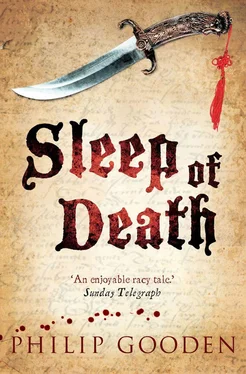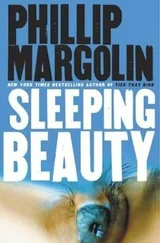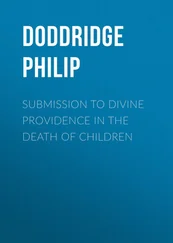Philip Gooden - Sleep of Death
Здесь есть возможность читать онлайн «Philip Gooden - Sleep of Death» весь текст электронной книги совершенно бесплатно (целиком полную версию без сокращений). В некоторых случаях можно слушать аудио, скачать через торрент в формате fb2 и присутствует краткое содержание. Год выпуска: 0101, ISBN: 0101, Издательство: Constable & Robinson, Жанр: Исторический детектив, на английском языке. Описание произведения, (предисловие) а так же отзывы посетителей доступны на портале библиотеки ЛибКат.
- Название:Sleep of Death
- Автор:
- Издательство:Constable & Robinson
- Жанр:
- Год:0101
- ISBN:9781472104311
- Рейтинг книги:5 / 5. Голосов: 1
-
Избранное:Добавить в избранное
- Отзывы:
-
Ваша оценка:
- 100
- 1
- 2
- 3
- 4
- 5
Sleep of Death: краткое содержание, описание и аннотация
Предлагаем к чтению аннотацию, описание, краткое содержание или предисловие (зависит от того, что написал сам автор книги «Sleep of Death»). Если вы не нашли необходимую информацию о книге — напишите в комментариях, мы постараемся отыскать её.
Sleep of Death — читать онлайн бесплатно полную книгу (весь текст) целиком
Ниже представлен текст книги, разбитый по страницам. Система сохранения места последней прочитанной страницы, позволяет с удобством читать онлайн бесплатно книгу «Sleep of Death», без необходимости каждый раз заново искать на чём Вы остановились. Поставьте закладку, и сможете в любой момент перейти на страницу, на которой закончили чтение.
Интервал:
Закладка:
As I sat with Messrs Tawyer and Sincklo in the tiring-house waiting for my entry in the last act of A City Pleasure I was musing over this story and wondering whether it was true. Didn’t it contradict what Nell had said about the Chamberlain’s Men? Wasn’t Burbage a good, uxorious man? Was anyone what they seemed to be? If it was true, and not a piece of inventive, malicious gossip, what did it show about Master WS — nothing much, perhaps, except that he was mischievous and quick-witted (as I had seen for myself when he rescued me from the attentions of Adam the boatman) and that he might look out for another man’s woman. Nothing much.
‘Well, Nick, and how do you find our Company?’
It was Master WS, wearing a bland expression and his ordinary day-clothes. His voice has a country sweetness to it (how many in this realm are drawn to the great city as if by a magnet!). I was reminded of Old Nick’s honey tones and how they made my hairs bristle, whereas with Master WS you at once trusted and liked the man. And this reminded me in turn that I was due to go back and see the apothecary after this afternoon’s performance. But here and now I was face to face with this man whom, at that instant, I had been convicting in my mind of a stealthy murder.
‘I am privileged to work here, sir.’
‘We are glad enough that you are with us. I have seen you play, let me see, three times now. And I have heard good reports from Master Burbage.’
I glowed. A warm feeling filled me. How ridiculous that I could think that this civil gentleman, with his kindly brown eyes and slight country burr, was branded with the mark of Cain!
‘And in this thing of Master Boscombe’s you are. .?’ he said, referring to A City Pleasure. I suspected that he knew and was asking for the sake of conversation.
‘John Southwold, a citizen of London, a figure of fun though not to himself.’
‘It is a good piece,’ said Master WS.
‘Oh it seems to me not so good,’ I said, meaning of course not so good as one of your own, but not having the courage to say so outright.
‘How so?’
‘It is clumsy,’ I said quickly. ‘For — for example, you can see straight away that the brother and sister are not brother and sister and that they will be married by the end of the piece.’
‘Of course you can,’ said Master WS. ‘A comedy must end with a marriage. It’s a rule.’
‘And,’ I ploughed on, ‘it does not seem to my eyes a very deep satire. The audience enjoys the jokes. They laugh at the corruption and foolishness that the author shows them.’
‘Why shouldn’t they?’
‘But they do not understand that the author is showing them themselves. Holding the mirror up to nature.’
Master WS half smiled in acknowledgement, I supposed, of my reference to one of his own lines.
‘They think that the author is showing them their neighbours,’ he said, ‘and that is what makes them laugh.’
‘Then they do not understand properly.’
‘Everyone thinks that the satirist’s darts are aimed at the man in the next room,’ said Master WS. ‘It is not in human nature for any of us to consider the same darts as lighting on ourselves. That is why we can all bear satire so light. ’
Again I noticed that deplorable tendency to punning. Accordingly, I tried to raise the tone of our dialogue with a classical reference.
‘Then it is like Pegasus and the Gorgon.’
‘It is?’
‘For Pegasus held up a mirror and deflected the glance of the Gorgon that would have turned him to stone. Just so each of us turns away the killing glare of the satirist.’
‘Very good, Master Revill, though I think that you mean Perseus. Perseus was a hero, Pegasus was a horse with wings.’
This correction was delivered so gently that I did not feel more than faintly humiliated. I was eager to keep talking, or rather listening, to this quiet man. From his clothes and relaxed manner, he had no part in the afternoon’s comedy and was apparently casting his eye backstage in the same way that a landlord might survey his estate.
‘You mentioned rules a moment ago. The rule that comedy ends with marriage. What about tragedy?’
‘A tragedy may begin with a marriage.’ And Master WS looked for a moment wistful.
‘Discord in marriage, that is comedy, is it not?’ I said. ‘The unfaithful wife, the cuckolded husband who may be dubbed the knight of the forked order — the man with horns is always a laughing stock.’ (I was thinking, on stage, yes; but I was also thinking of Sir William Eliot.)
‘But what if he that was hit with the horn was pinched at the heart, truly pinched, and so ran mad?’ said Master WS. ‘That might make a tragedy. Or if the wife accused of infidelity was innocent. That might make a tragedy.’
‘It sounds as if there are no rules then,’ I said, to draw him on. ‘These things are usually funny.’
‘Oh, there are one or two rules, if you want to call them that, though I prefer to say tricks of the trade. The kind of tricks that an alchemist might use — or an apothecary — in order to draw in an audience which is anyway willing to be seduced.’
Was it my imagination or did Master WS’s gentle gaze suddenly harden as he said ‘apothecary’? I fancied that he was looking very intently at me and I grew uncomfortable.
‘As?’ I said. ‘What rules of play-writing do you mean?’
‘That nothing very important shall happen in the first few moments, while the audience is settling down to watch and listen. They must finish talking to their neighbours or swallowing their drink or lighting their pipes. Only when they have attended to their own comforts can they give their full attention to the play. And so the business played out on stage at the beginning should be small beer.’
‘Oh,’ I said, obscurely disappointed. I had been hoping for a revelation from Master WS, not observations on the eating and drinking habits of the spectators. He continued:
‘Or — to give you an example from the other end of the action — before the climax of a play the hero shall withdraw from the action. The audience will not see him for the space of an act or so. That way, when he returns they are the more pleased at his return and the more sorrowful at his demise. Prince Hamlet is kidnapped on his way to England by pirates and we do not see him for a time. At the same time, the author must not make the fourth act overlong, in case the audience grows impatient for the hero’s restoration.’
‘Ah,’ I said, wondering whether there was not real wisdom to be found after all in such small things.
‘Now, Nick, I must not distract you because your cue arrives in a moment.’
He clapped me on the shoulder in a friendly way and then went across to have a word with Messrs Tawyer and Sincklo. So absorbed had I been by Master WS’s words and — to be truthful — so concerned had I been by the impression I was making on him that I had almost forgotten the play unwinding on stage. He hadn’t though. I realised that, all the time we’d been talking in low tones, he had been listening to the lines that reached us from the far side of the tiring-house wall and assessing the time remaining before my next entry. Master WS must have an excellent working knowledge of A City Pleasure if he knew when a minor player such as myself was due to appear. And all this for a work not his own, and one that in my eyes had appeared to be a journeyman piece. I resolved to pay more attention, to try to work out for myself some of those things that he had termed the tricks of the trade.
After the performance I made my way across the Bridge and up towards Paul’s. The streets were beginning to empty and I remembered the recent occasion when I had been convinced that I was being followed. This time I experienced no warning prickle, no sense of being observed. I felt inclined to laugh at my suspicions and the caution of hiding away under the slimy pillars of a pier on the river. Most likely the plump, respectable-seeming citizen I’d glimpsed was exactly what he seemed. Similarly with Master WS. This courteous and thoughtful man, with his fatherly concern for the younger members of the Company, how could he be other than what he appeared? Yet, as I walked up Paul’s Chain, I thought too of how fond Master WS was of disguise and doubleness in his plays. He has told us himself how one may smile and smile and be a villain.
Читать дальшеИнтервал:
Закладка:
Похожие книги на «Sleep of Death»
Представляем Вашему вниманию похожие книги на «Sleep of Death» списком для выбора. Мы отобрали схожую по названию и смыслу литературу в надежде предоставить читателям больше вариантов отыскать новые, интересные, ещё непрочитанные произведения.
Обсуждение, отзывы о книге «Sleep of Death» и просто собственные мнения читателей. Оставьте ваши комментарии, напишите, что Вы думаете о произведении, его смысле или главных героях. Укажите что конкретно понравилось, а что нет, и почему Вы так считаете.












